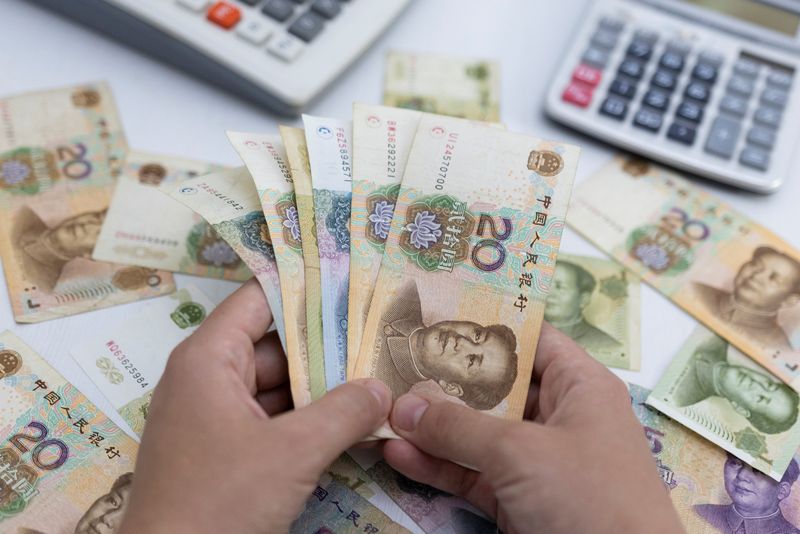By Summer Zhen and Nell Mackenzie
Hong Kong/London, (Reuters) - Global hedge funds have trimmed their exposure to Chinese equities to the lowest in five years while ramping up investment in Japan, Goldman Sachs said in a note to clients.
The retreat highlights investors' deep-seated concerns about China's economy. Chinese shares are nearly flat this year, as early gains betting on a rally fizzled owing to disappointment over policy measures to revive a flagging economy.
Selling in emerging markets stocks last month was led by China, with mainland A-shares dominating the outflows, according to a Goldman Sachs prime services team report this week.
As a result, hedge funds' net allocation to China, including investments in onshore and offshore Chinese equities, fell to the lowest level in five years, they said. In contrast, allocations to Japan climbed to four-year highs by the end of July.
"Divergence between net allocation in Japan and China continues to widen," the investment bank said in the note.
As deflationary pressures mount in China and Japan raises rates as it emerges from years of deflation, hedge funds are flocking to the Japanese market in search of growth opportunities.
Japan's Nikkei index is up 17% so far this year.
China, the world's second-largest economy, grew 4.7% in the second quarter, its slowest since the first quarter of 2023.
Even recent surprise rate cuts and policy guidance from the Communist Party's Third Plenum did little to offset concerns about domestic demand or lift sentiment, analysts said.
Many investors are not looking at China as an investment until there is more clarity both on the domestic recovery, the outcome of the U.S. elections and U.S. policies relating to China, said Patrick Ghali, managing partner of hedge fund advisory firm Sussex Partners.

Hedge funds globally in aggregate had roughly 6.6% allocation in Chinese equities at the end of July, Goldman Sachs said, compared with a peak of 15% in mid-2020.
Meanwhile, China-focused long-short equity funds recorded the toughest month in over 2 years, losing an average 5.8% by July 29, Goldman Sachs estimates. Broader pan-Asia long-short equity funds retreated 3.5% for the period, while Japan was up 1.2%.